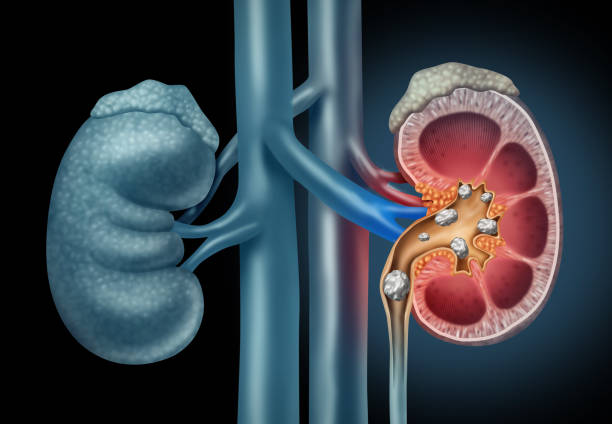
Kidney stones can be a painful and bothersome condition. It affects millions worldwide. Although various factors contribute to their formation, the levels of urine citrate and oxalate play crucial roles.
What are Kidney Stones?
Kidney stones are hard deposits formed in the kidneys when certain substances in the urine, like calcium, oxalate, and uric acid, become highly concentrated. As a result of high concentration, these substances crystallize and clump together, forming stones of different sizes. These stones then obstruct the urinary tract, causing severe pain and discomfort.
Role of Urine Citrate
Urine citrate, also known as citric acid, is a natural substance found in urine that prevents the formation of kidney stones. Citrate acts as a urinary inhibitor by binding to calcium in the urine. It prevents calcium from combining with other substances and forming stones. Citrate also helps to dissolve existing stones and inhibits the growth of crystals.
Low levels of urine citrate increases the risk of stone formation. Certain medical conditions, like metabolic disorders and medications, can reduce citrate levels in the urine. Ideal citrate promotes kidney stone prevention.
Role of Urine Oxalate
Oxalate is a naturally occurring substance that is found in many foods. During the digestive process, oxalate binds with calcium and forms crystals. If these crystals are not adequately eliminated through urine, they trigger kidney stone formation.
High levels of urine oxalate increase the risk of developing calcium oxalate stones, which is the most common type of kidney stone. Factors such like oxalate-rich foods (such as spinach, peanuts, and chocolate), certain gastrointestinal conditions, and genetic factors can increase urine oxalate levels.
Symptoms of kidney stone
- Sharp pains in the back, side, lower abdomen, or groin.
- Pink, red, or brown blood in your urine, also called hematuria.
- A constant need to urinate.
- Pain while urinating.
- Inability to urinate or can only urinate a small amount.
- Cloudy or bad-smelling urine
Diagnosis of kidney stones
Lab or imaging tests are used in the diagnose kidney stones
- Urinalysis
Urinalysis can show whether your urine has blood in it and minerals that can form kidney stones
- Blood test
The blood test can show if you have high levels of certain minerals in your blood that can lead to kidney stones. Commonly used blood tests for kidney stone diagnosis are the basic metabolic panel (BMP) or the comprehensive metabolic panel (CMP) and the uric acid test.
- Urine test
Urine Oxalate and Citrate estimation in urine
- Imaging test
Abdominal x-ray and computed tomography (CT) scans procedures are used to confirm the presence of kidney stones.
Maintaining a Healthy Balance
Achieving a healthy balance between urine citrate and oxalate is essential for kidney stone prevention. Here are some practical tips to help you maintain this balance:
- Staying hydrated
- Including a balanced diet
- Limiting sodium intake
- Prompt medical evaluation
Conclusion
Understanding the roles of urine citrate and oxalate in kidney stone formation is vital for maintaining kidney health. While urine citrate inhibits stone formation, urine oxalate can contribute to stone development. By adopting a balanced diet, staying hydrated, and seeking medical guidance, you can take proactive steps to prevent kidney stone formation and promote overall kidney wellness.

